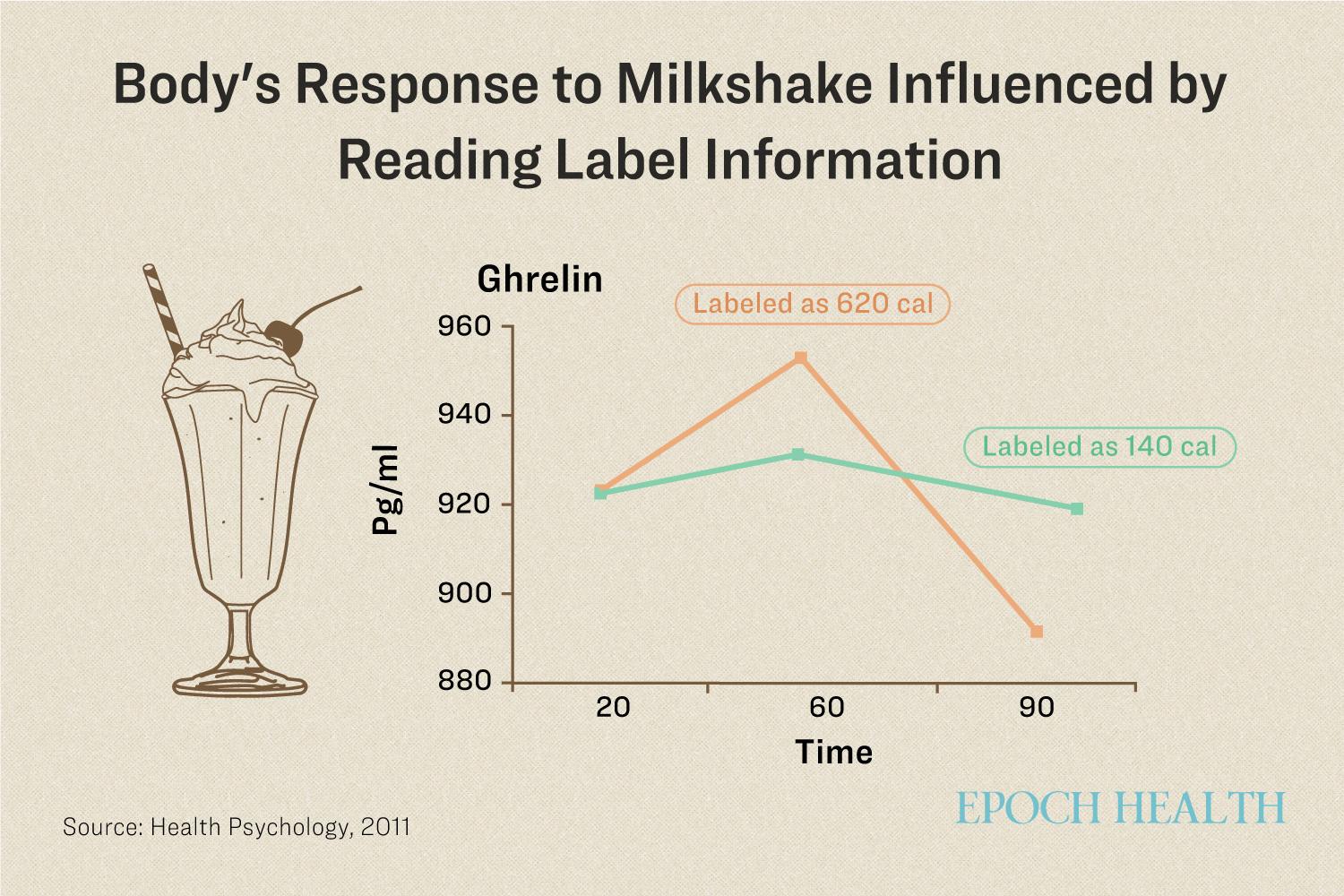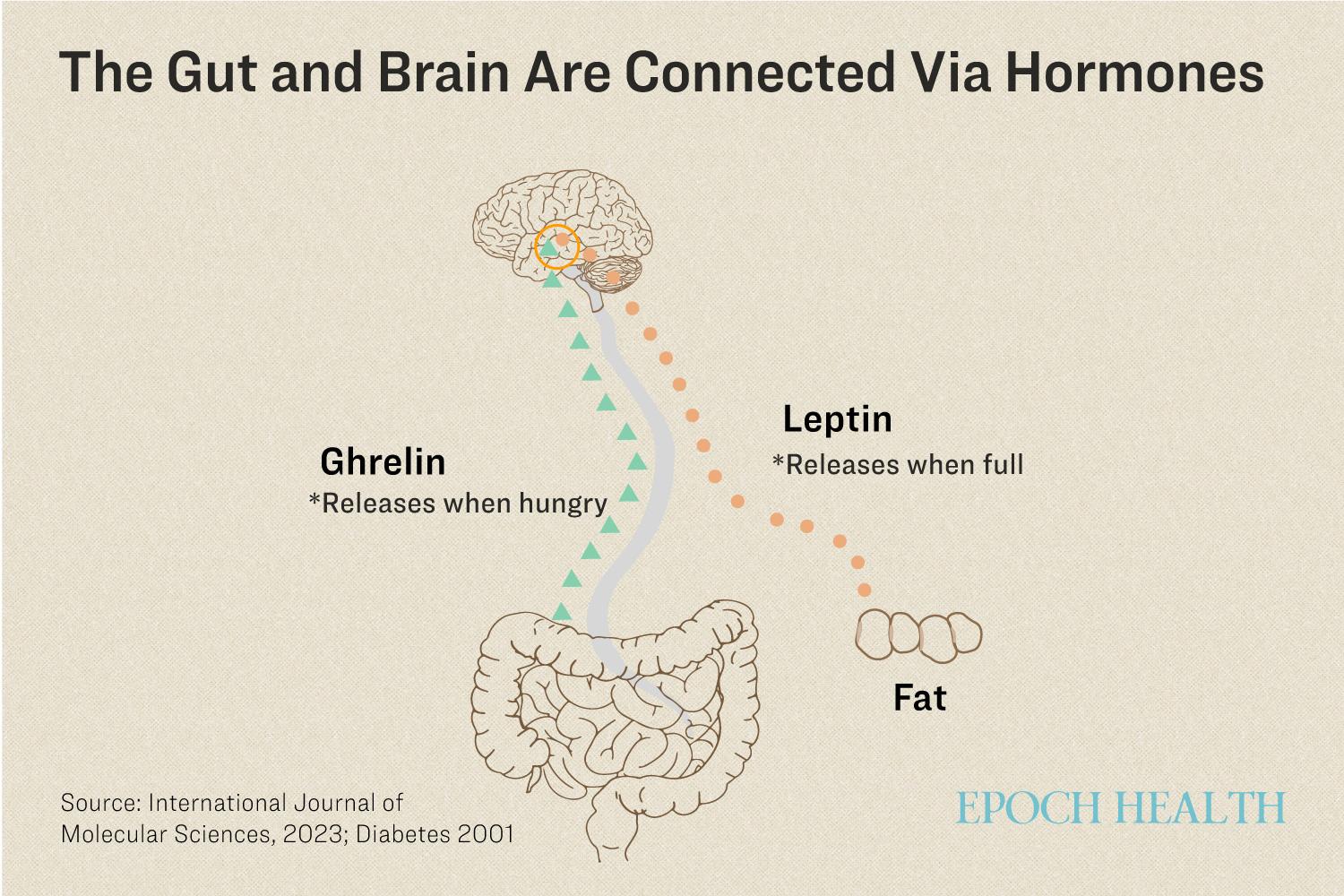Our perceptions about what we eat affect how our bodies respond to food.
For instance, when we take in low calories, if we are informed that our food contains many calories, our bodies may respond in a manner similar to eating higher-caloric foods—such is the power of the mind.
Milkshake Research
In 2011, Yale University researcher Alia J. Crum and co-authors published a study in Health Psychology in which 46 participants consumed a 380-calorie milkshake labeled in two different ways, each reflecting calorie content.
One group received the milkshake labeled as “indulgent” with a claim of 620 calories, while the other group received a milkshake labeled as “sensible” with a claim of 140 calories.
Before and after they drank the milkshake, ghrelin—the hunger hormone—was measured in their blood, and their perception of the healthiness of the food was also assessed.
The indulgent label group reported a much lower perception of the healthiness of the food compared to the sensible group.
The indulgent label group exhibited a dramatically steeper decline in ghrelin levels after drinking the shake, whereas the sensible group showed a relatively flat ghrelin response.

Two groups drank milkshakes with the same ingredients but with different calorie information on the labels. The group whose labels read 620 calories had a steeper decline in ghrelin (representing feeling full). The group whose label read 140 calories had a relatively flat ghrelin (representing feeling less full). Illustration by The Epoch Times
Ghrelin is a hormone that signals hunger, whereas the hormone leptin signals fullness. The former is released into the bloodstream by the gut when a person is hungry, whereas the latter is released from fat cells when a person is full.

Ghrelin is a hormone that is released into the bloodstream by the gut signaling hunger. Leptin is a hormone released from fat cells that signals fullness. Illustration by The Epoch Times
Poor Communication
In people with obesity, ghrelin does not reduce after a meal, and the brain does not receive the fullness signal.
Experimenting With Hormones
Since the discovery of ghrelin, scientists have tried to develop therapeutics targeting ghrelin-related pathways to treat obesity, however, due to the potential adverse effects in brain-rewarding centers, to date, there has been little success.
Researchers have also experimented with another hormone called glucagon-like peptide-1 (GLP-1) in weight loss. GLP-1 is released after eating, thus regulating appetite and body weight.
Mindfulness Helps Holistically
In a 2020 study, Mexican researchers assessed the effects of an 8-week mindfulness-based intervention on body weight, appetite regulators, and stress in 45 school children with coexisting obesity and anxiety.
One group received an 8-week conventional nutritional intervention (diet) and the other an 8-week mindfulness-based intervention. The mindfulness intervention focused on improving body awareness, increased awareness of eating, and understanding emotions.
Before the study began, the kids had similar body fat, ghrelin levels, leptin levels, and other measures of health parameters.
After eight weeks, the kids in the mindfulness group experienced declines in anxiety and body fat. Their ghrelin and stress hormones were also reduced. In addition, at 16 weeks, they had experienced a lasting decrease in body mass index (BMI).
 Source link
Source link






